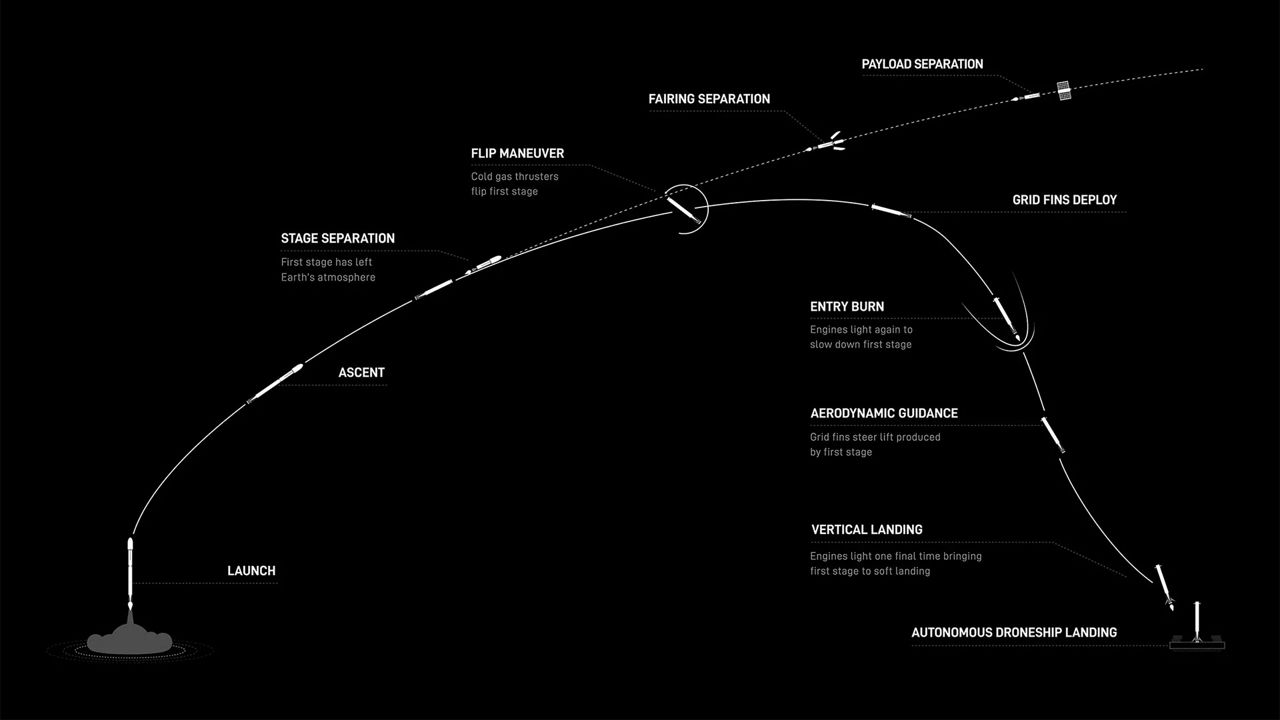CAPE CANAVERAL SPACE FORCE STATION — SpaceX launched more than 20 Starlink satellites late Sunday evening.
What You Need To Know
- SpaceX’s Falcon 9 rocket will send up Starlink 12-23 mission from Space Launch Complex 40
The company’s Falcon 9 rocket sent up the Starlink 12-23 mission from Space Launch Complex 40 in Cape Canaveral Space Force Station at 10:09 p.m. ET.
Originally, SpaceX stated the Starlink 12-23 mission’s launch window would open at 10:58 p.m. ET and close at 1:56 a.m. ET, Monday. It did not state why there was a change.
The 45th Weather Squadron gave a 90% chance of good liftoff conditions, with the only concerns being the cumulus cloud and anvil cloud rules.
Find out more about the weather criteria for a Falcon 9 launch.
However, if the launch was scrubbed, the next attempt would have been Monday starting at 9:51 p.m. ET.
Now, if this launch was pushed into Monday morning during its first launch attempt or scrubbed altogether and try again on Monday night, that would have been a rare double launch day not for space companies but for rocket fans as United Launch Alliance will be sending up the Project Kiper mission on Monday evening.
The Big 2 0
This will be the 20th mission for the Falcon 9's first-stage booster B1077. Its last 19 missions included a crew launch and a whole lot of Starlink ones.
- Crew-5
- GPS III Space Vehicle 06
- Inmarsat I-6 F2
- CRS-28
- Intelsat G-37
- NG-20
- Optus-X
- Starlink mission 5-10
- Starlink mission 6-13
- Starlink mission 6-25
- Starlink mission 6-33
- Starlink mission 6-43
- Starlink mission 6-51
- Starlink mission 6-63
- Starlink mission 10-4
- Starlink mission 8-11
- Starlink mission 6-71
- Starlink mission 12-8
- Starlink mission 12-25
After the stage separation, the first-stage rocket landed on the droneship Just Read the Instructions that was in the Atlantic Ocean.

About the mission
The 23 satellites will be heading to low-Earth orbit to join the thousands upon thousands that call it home.
Once deployed and in their orbit, they will provide internet service to many parts of our little round world.
Dr. Jonathan McDowell, of Harvard-Smithsonian Center for Astrophysics, keeps track of Starlink satellites.
Before this launch, McDowell recorded the following:
- 7,247 are in orbit
- 6,579 are in operational orbit
